On March 7, 2023, (from left to right) Cai Qi, Wang Huning, and Li Qiang at the Chinese Communist Party's National People's Congress. (Greg Baker/AFP via Getty Images)
[People News] The political atmosphere in Zhongnanhai remains murky. After returning from a recent trip to Southeast Asia, the Chinese Communist Party (CCP) leader, whose power is said to have been weakened, was met with news that Vietnam had purchased American fighter jets and was deepening cooperation with the United States, revealing the limited results of his diplomacy. Meanwhile, Hu Chunhua, the former “princeling” demoted to Vice Chairman of the Chinese People’s Political Consultative Conference (CPPCC) by the Party leader, made a strange move during his visit to three African countries by not delivering the Party leader’s greetings to the President of Sierra Leone. Additionally, during a meeting with the Indonesian Defence Minister, Zhang Youxia, Vice Chairman of the Central Military Commission, referred vaguely to “the two heads of state,” avoiding mentioning the Party leader’s name. This contrasts with a similar meeting in 2019, when then-Vice Chairman Xu Qiliang explicitly named both the Chinese leader and the Indonesian President.
On April 23, another strange incident occurred involving Beijing’s official media. The CPPCC website published two news reports involving CPPCC Chairman Wang Huning. One reported on Wang’s meeting with a delegation from Japan’s Komeito Party, during which Wang referenced a meeting between Xi Jinping and Japanese Prime Minister Shigeru Ishiba in Lima last November. The second report covered a group study session of the CPPCC Party Leadership Group held on April 22, which was the second such session of 2025. The session focused on studying Xi's “important discourse on strengthening Party conduct” and the “spirit of implementing the Central Eight-point Regulations and their detailed rules.” Wang Huning presided over the session and delivered a speech.
In his remarks, Wang initially praised Xi, claiming Xi’s discourse “provides sharp ideological tools” and offers fundamental guidance for the entire Party’s learning efforts. He emphasised the importance of deeply understanding the “Two Establishes” and resolutely achieving the “Two Safeguards.” Only afterward did Wang touch upon the “major historical significance” of the Central Eight-point Regulations and the “valuable experience and achievements” gained, stressing the importance of consciously and firmly implementing them.
The report stated that the CPPCC Party Leadership Group must “take the lead in implementing the Party Central’s various deployments on deeply studying and implementing the spirit of the Eight-point Regulations,” but not a single word about Xi Jinping was mentioned in this context. The CPPCC Party Leadership Group includes Deputy Secretary Shi Taifeng, Hu Chunhua, and members Shen Yueyue, Wang Yong, Batel, Chen Wu, Mu Hong, Wang Dongfeng, and Jiang Xinzhi—at least Shi Taifeng, Hu Chunhua, and Jiang Xinzhi are known associates of Hu Jintao.
Why is this considered strange? The first oddity is that although Xinhua News Agency published the report of Wang’s meeting with the Japanese guests, it did not publish the report on his leading the Party group meeting. This report was also missing from Wang Huning’s personal column. However, the CPPCC website cited Xinhua as the source of the article. This implies that the state media either wrote the article but chose not to publish it, or published it briefly and then took it down.
Normally, any official activity of a CCP Politburo Standing Committee member would be posted on the Xinhua News website and included in their dedicated news columns. For instance, the first CPPCC Party Leadership Group meeting on January 10 this year was published and archived accordingly. However, the second meeting chaired by Wang Huning was not treated the same way at all.
Given the backdrop of the Party leader’s weakened authority, the speculation that CCP elders may now be controlling real power and forming a new “Party Central,” and the internal power struggle at the highest levels in Zhongnanhai, Wang Huning’s excessive praise of Xi may have violated some high-level restriction. That restriction may be an internal agreement that, after the “Two Sessions” (Lianghui), where giving face to Xi was permissible, expressions of flattery should then be toned down, laying the groundwork for Xi’s eventual exit.
Changes in the Party media’s tone since the end of the Two Sessions seem to confirm this. Most top officials, including Standing Committee members, have largely stopped praising Xi. The most obvious example is the March 31 Politburo meeting, where the report made no mention of “Xi as the core.”
Additionally, Wang Huning’s speech at the closing session of the Third Meeting of the 14th CPPCC National Committee on March 10 was also tampered with in state media reports—some of the excessively flattering remarks toward Xi were deleted. For the speech of a Politburo Standing Committee member—especially when it involves Xi—to be censored is by no means a trivial matter.
However, on the evening of April 23, Xinhua News did publish a report titled “Wang Huning Meets with Trainees of the Seminar on the Party’s United Front Work in the New Era.” This report still contained some praise for Xi by Wang, but it was far less sycophantic than before. So why was this news allowed to be published, while the equally important CPPCC Party Group meeting report was not? This likely ties into the second strange detail.
The second anomaly is that, aside from Wang Huning’s praise for Xi, the other members in the CPPCC Party Group meeting completely ignored Xi in their statements—not a single mention of the Party leader.
This can be compared to the report of the first Party Group meeting held in January. At that time, the state media report did not distinguish Wang from the others; instead, it used the phrase “the meeting believed” to convey that all participants agreed on the content, which included praising Xi, referencing the central leadership with Xi at its core, stating that his speech offered “important guidance,” and highlighting the “Two Establishes,” “Two Safeguards,” and Xi’s directives. The meeting urged all levels of the CPPCC Party Groups and special committees to deeply study Xi’s speeches and spirit and to implement “Xi Jinping Thought,” etc. Clearly, at that time, Wang Huning’s remarks had full support from the others.
However, after the “Two Sessions,” as circumstances changed and some internal agreement took effect, signs of Xi’s diminishing power became increasingly evident. The CCP authorities, now reportedly controlled behind the scenes by Party elders, began to release certain signals externally. Most senior officials, being aware of the internal dynamics, began to follow the new rule—this explains why the other CPPCC Party Group members no longer echoed Wang’s flattery, and why the report was presented in a way that separated their views. This is also the main reason why Xinhua pulled the article, especially considering that Hu Jintao’s allies were involved.
As for why the report about Wang’s meeting with the seminar trainees was published as usual, it’s because that meeting only represented his personal opinions. It can be used to create a smokescreen before any official announcement of leadership changes—an intentional clouding of the power shift.
So, why would Wang Huning defy the new "Party Central" rule if he knew about it? Could it be that he was trying to show just how loyal he is to Xi? Clearly not—true loyalty doesn’t enter the equation here. As the architect behind the vague and often incoherent theories of three successive Party leaders, Wang Huning is a consummate opportunist, almost sycophantic in nature.
The author believes that Wang Huning’s actions likely stem from frustration after suffering setbacks in the power struggle for the top position. His praise of Xi may have been a way to vent his dissatisfaction. Meanwhile, the new “Party Central,” with no regard for Wang’s dignity, took down the news that also touched on Hu Jintao’s allies—this further proves that Wang’s power is equally constrained. Wang’s dissenting voice from within Zhongnanhai suggests that until the new power-holder is publicly revealed, Zhongnanhai will remain a battlefield shrouded in fog, filled with back-and-forth maneuvering—and perhaps even political executions.
(Postscript: After this article was completed, it was discovered that the CPPCC website altered the wording of the report on the CPPCC Party Group meeting. Wang Huning’s flattery of Xi was changed to “the meeting pointed out,” blurring the line between Wang and the other members. But how can the CCP’s internal rift really be concealed? The fact that Xinhua never published the article says a lot. If Xinhua were to publish it after the revision, it would only prove they’re trying to cover something up.)
(First published by People News)

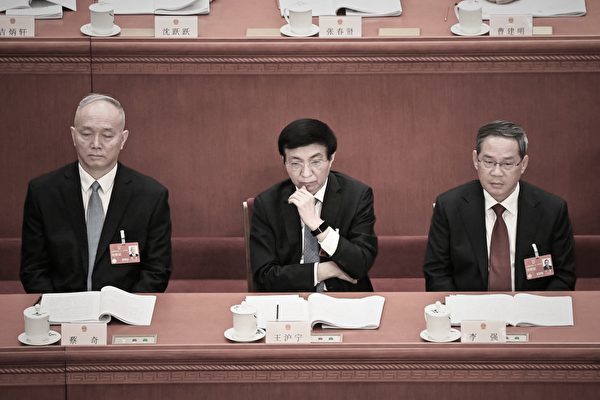
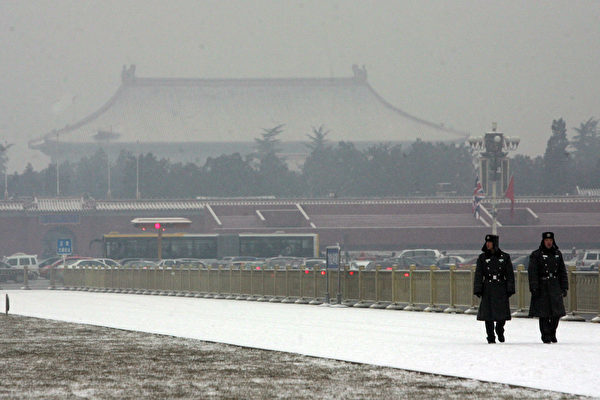
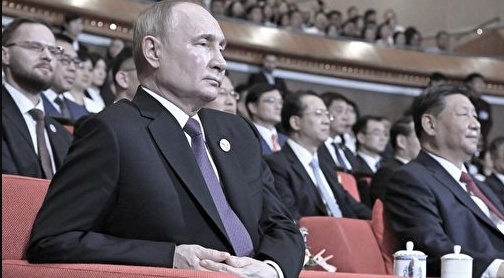
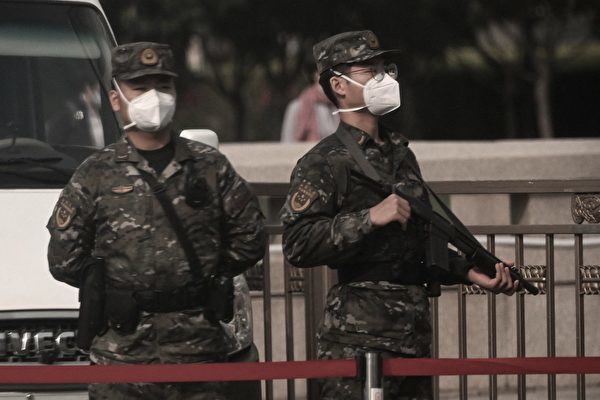
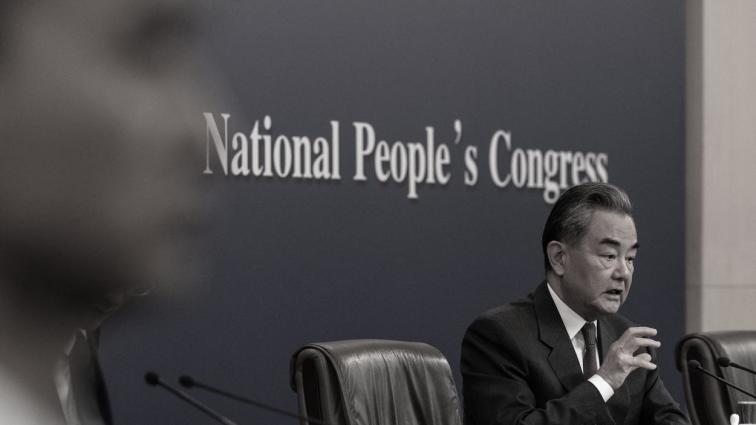
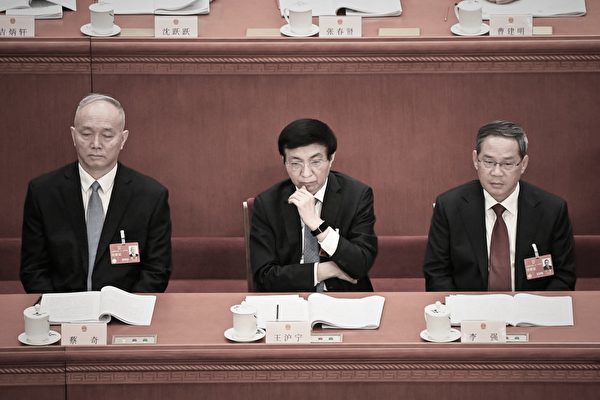




News magazine bootstrap themes!
I like this themes, fast loading and look profesional
Thank you Carlos!
You're welcome!
Please support me with give positive rating!
Yes Sure!